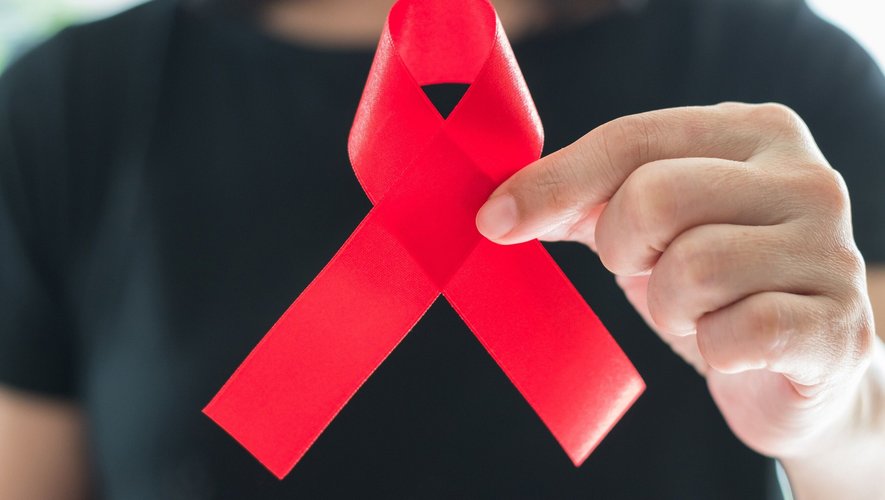(AFP) – They have experienced heavy treatment, stigmatization, fear of dying… For more than 30 years, they have had to learn to live with HIV.
– “Survivor” –
+ Pascale Lassus, 62, retired in Bayonne
I was infected in 1984 by my boyfriend at the time, who did not know he was HIV positive. I was from the “pill” generation, I didn’t feel at all concerned by AIDS. I went 10 years without knowing that I had HIV. In 1994, I fell ill: antibiotic-resistant bronchitis. I took a test which came back positive. I fell from the clouds. I had lived normally until then and then my immune system ended up going haywire.
When I found out, I had a 6 year old daughter. She also took the test: positive. The doctor told me she wouldn’t make it through adolescence, I was totally devastated.
At the time, the only treatment available was AZT, which caused horrific side effects. At night I woke up my daughter because it had to be taken every four hours. For school, I lied, I said she had allergies.
Then in 1995, triple therapies arrived. In 30 years, treatments have become much easier.
Today, my daughter is 35 years old. She was able to have a child who is HIV-negative, a little “miracle”.
I was forced to stop working in 2006. And I know that I will never restore my immune system which is not very strong, but I consider myself lucky. I had a lot of gay buddies who all left. I often said to myself: “why am I still here?” I consider myself a survivor.
– “Stigmatized” –
+ Paul Kidd, 59, activist and lawyer, north of Melbourne (Australia)
I was diagnosed HIV-positive in 1991, but I probably had been for a few years already. I had asked for a test around 1986, but at that time the political climate was very bad for people living with HIV, with open calls for us to be quarantined.
My diagnosis was difficult to accept but not really a surprise, because one of my ex-partners had died of AIDS in 1988.
Many people I knew and loved are gone. I remember the “Candlelight Aids memorial” in Sydney in 1985: I sat among thousands of people in a large park, listening to the names of deceased people being called out. Everyone was overwhelmed with grief.
I started AZT right after my diagnosis, it definitely saved my life. Many sufferers found the side effects intolerable and discontinued it. Today’s treatments are very different.
One thing that hasn’t changed much is the stigma associated with HIV. It is still criminalized in many countries around the world.
In Uganda and Ghana in particular, the situation is terrible, and people living with HIV in Russia and Eastern Europe have a much more difficult life than mine.
I know I’m lucky to still be alive and the volunteer work I do is my way of honoring the memory of those who are no longer with us.
– “Survivor” –
+ Joël Vermont, 58, job seeker in Vincennes
I learned of my HIV status in 1992: I was 27, I felt like a building was falling on my head.
I took AZT. It was abominable between diarrhea, nausea… I went from 88 to 60 kilos.
Then the triple therapies arrived, but they didn’t work on me. I switched to alcohol.
My viral load exploded, I developed lung disease and the onset of cancer. I landed in the hospital, where I remained in a coma for 45 days. When I woke up, I couldn’t walk and I was paralyzed in one arm. I had to relearn everything.
At work, I was discriminated against. I had depression. After 8 years of a long sick leave, I won my case in court. I got involved in the community.
For years I heard I was going to die and then all of a sudden I was told I had to live. I needed psychological support to accept that. I often say that I am an AIDS survivor.
– “Forgotten” –
+ Grisel Granados, 36, deputy director of a women’s association in Los Angeles
Born in Mexico in 1986, before blood donations were regularly tested for HIV, I contracted the virus through breastfeeding, my mother having been infected through blood transmission.
It wasn’t until five years later, when my father started getting sick, that we found out we had HIV.
Even though I had cancer when I was 10, I think I had a normal childhood. But I think the generation born with HIV is too often forgotten or ignored.
As a teenager, I took 14 pills a day. Now I only have one and feel very lucky to have never experienced any side effects. For me, one of the most important advances for people living with HIV is to be able to have children and breastfeed them without risk.

